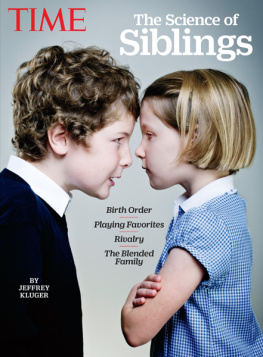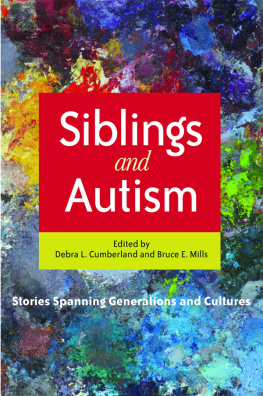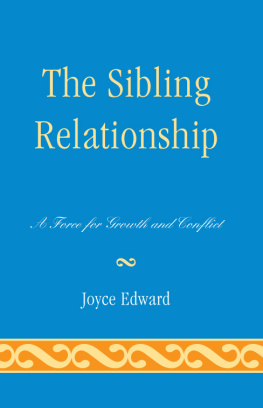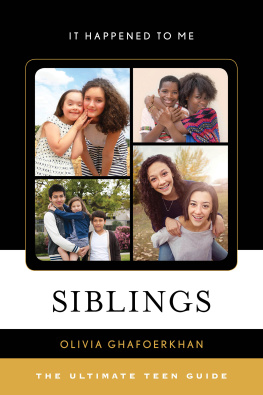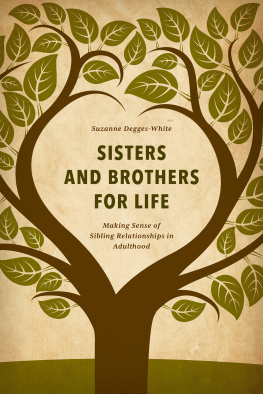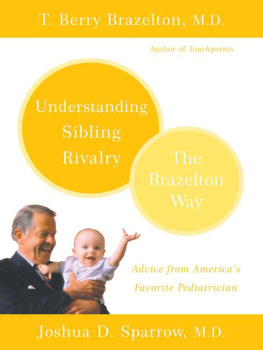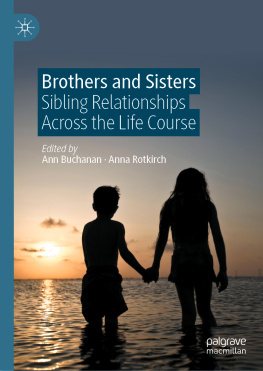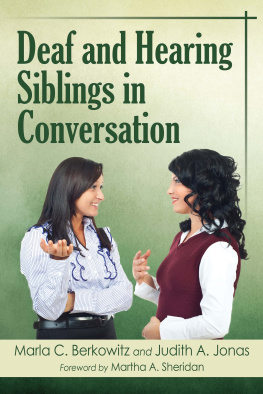Contents



The Science of
Siblings
BY JEFFREY KLUGER
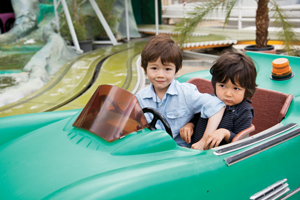
About the Author
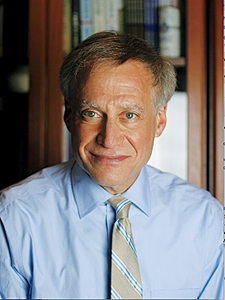
JEFFREY KLUGER is editor at large for TIME magazine and TIME.com, reporting on science and human behavior. He is the author of nine books, including Apollo 13 , on which the 1995 movie was based, and two novels for young adults. His most recent book is The Narcissist Next Door , published in 2014. This TIME special edition is adapted from his book The Sibling Effect: What the Bonds Among Brothers and Sisters Reveal About Us , published by Riverhead Books, an imprint of Penguin Publishing Group, a division of Penguin Random House LLC. Copyright 2011 by Jeffrey Kluger.
Band of Brothersand Sisters
What Science Tells Us About Our Most Enduring Relationships
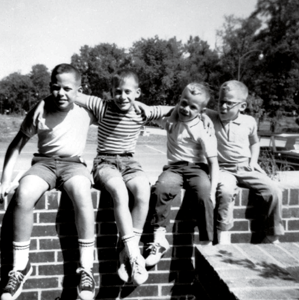
The author outside his Baltimore home in the summer of 1962, with those who knewand knowhim best. From left, his brother Steve, 10; author Jeffrey, 8; and brothers Garry, 6, and Bruce, 5.
THE UNIVERSE OF HUMAN relationships is an impossibly varied one. Wives have their husbands; children have their parents; lovers have their partners; friends have one another. There are cousins and aunts and uncles and grandparents, schoolmates and colleagues and rivals and peers. Every one of those relationships plays out under its own set of rules and rituals, each unique, each elaborate. For all that richness and complexity, however, there may be no relationships that can run quite as deep or survive quite as long as those among siblings.
From the time were born, our brothers and sisters are our collaborators and co-conspirators, our role models and our cautionary tales. They are our scolds, protectors, goads, tormentors, playmates, counselors, sources of envy, objects of pride. They help us learn how to resolve conflicts and how not to; how to conduct friendships and when to walk away from them. Sisters teach brothers about the mysteries of girls; brothers teach sisters about the puzzle of boys. Bigger sibs learn to nurture by mentoring little ones; little sibs learn about wisdom by heeding the older ones. Our spouses and children arrive comparatively late in our lives; our parents leave us too early. Our brothers and sisters, says Katherine Conger of the University of California, Davis, are with us for the whole journey.
Even now, with the much-lamented fragmentation of so many families, brothers and sisters transfix us. There can be dignity in the sibling bond: think of Cooper Manning, his own football dreams smothered in the cradle by a congenital narrowing of the spine, standing on the sidelines and cheering with seemingly genuine joy as little brothers Peyton and Eli go on to win Super Bowls. There can be petulance, too: think of Neil Bush, sibling of a president and a governor, and veteran of both a savings-and-loan scandal and a messy public divorce, famously griping, Ive lost patience for being compared to my brothers. There can also be greatness: Would the Williams sisters have become the athletes they are if there had been no Venus to push Serena, nor Serena to push Venus?
Most of us will experience our relationships with our siblings much more privately and much less spectacularly, but well feel them no less acutely. A household with multiple siblings is a parliament of personalities that are forever in motion and often in conflict. There are alliances and feuds, loyalties and betrayals. Slights are remembered and favors are banked. Daily wars erupt in the playroom, requiring compromises to be negotiated and peace deals to be struck. Getting along with a brother or sister, says Laurie Kramer, a professor of applied family study at the University of Illinois, can be a complicated experience.
Still, family studies sidestepped many sibling questions for decades, focusing heavily on the husband-wife and parent-child bonds. But once the scientists had strip-mined all the findings from that work, they still came away with as many questions as answers. Somewhere, there was a sort of temperamental dark matter exerting an invisible gravitational pull all its own. And that force, the investigators finally began to accept, could only be our brothers and sisters.
Over the past 15 years or so, psychologists, sociologists, anthropologists, and even biologists and zoologists have begun studying brothers and sisters as never beforeteasing apart the genetic, sociological and psychological threads of the sibling relationship. Siblings, Conger says simply, are the last-explored territory of family relationships. In this TIME special edition, we bring you the latest insights on the many facets of sibling dynamics: birth order, favoritism, fighting, blended families, bad influencesand good ones.
I grew up in a household with three brothers, briefly had two stepsisters, and later acquired a half brother, a half sister and even a half stepsister. Every one of those people played a powerful role in shaping me, as Im sure I helped shape them. Our brood may have been bigger and more varied and often more fraught than mostand those experiences may have schooled us more deeply in all of the dimensions of sibling relationshipsbut anyone with even one sib has felt the primal influence of the bond.
The near universality of the sibling experience makes it something that powerfully affects all families. Whats more, that effect continues later and later in life. With Americans living longer than ever, increasing numbers of us will be launched into an old age in which weve outlived our friends, our parents and even our spouses, while our children and grandchildren have scattered to distant cities. For plenty of us, the only ones left at the end of the dance will be the ones what brung usthe brothers and sisters who have been with us the longest, loved us the hardest and, by a wide margin, know us the best.
Whos on First
The Mysteries of Birth Order
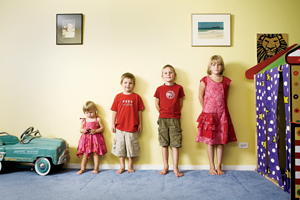
IT COULD NOT HAVE BEEN easy being Elliott Roosevelt. If the alcohol wasnt getting him, the morphine was. If it wasnt the morphine, it was the struggle with depression. Then, of course, there were the constant comparisons with big brother Teddy.
In 1883, the year Elliott began battling melancholy, Teddy had already published his first book and been elected to the New York State assembly. By 1891about the time Elliott, still unable to establish a career, had to be institutionalized to deal with his addictionsTeddy was U.S. Civil Service commissioner and the author of eight books. Three years later, Elliott, 34, died of alcoholism. Seven years after that, Teddy, 42, became president.
Elliott Roosevelt was not the only younger sibling of an eventual president to cause his family heartachesor at least headaches. There was Donald Nixon and the loans he wangled from billionaire Howard Hughes. There was Billy Carter and his advocacy on behalf of the pariah state Libya. There was Roger Clinton and his year in jail on a cocaine conviction. And there was Neil Bush, younger sib of both a president and a governor, implicated in the savings-and-loan scandals of the 1980s and gossiped about after the release of a 2002 email in which he lamented to his estranged wife, Ive lost patience for being compared to my brothers.
Next page
